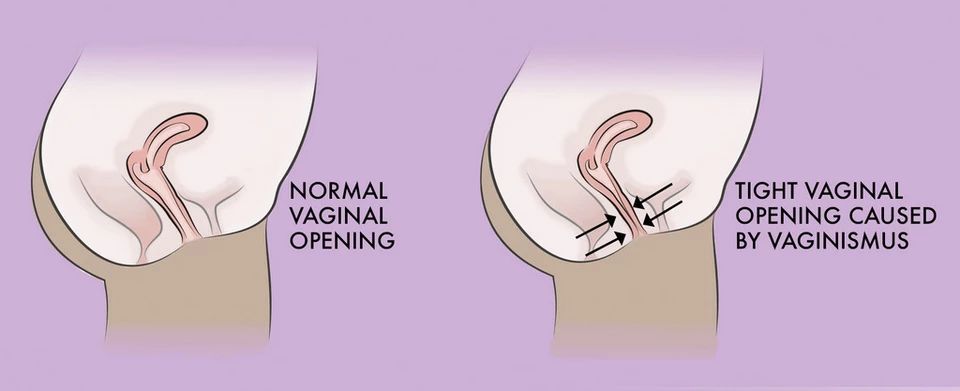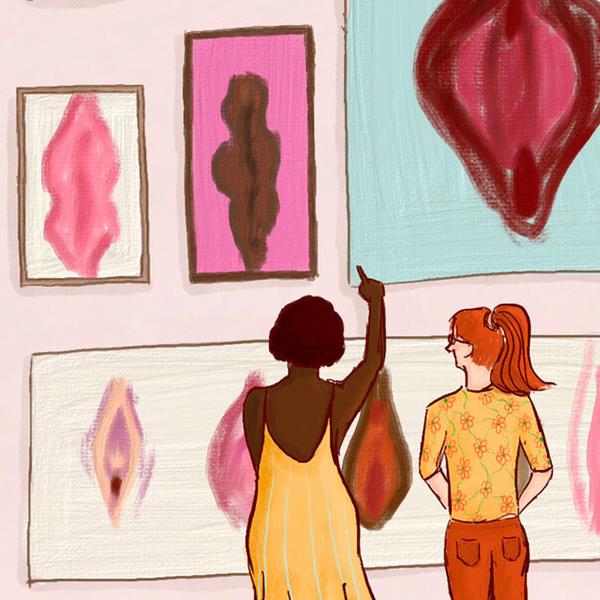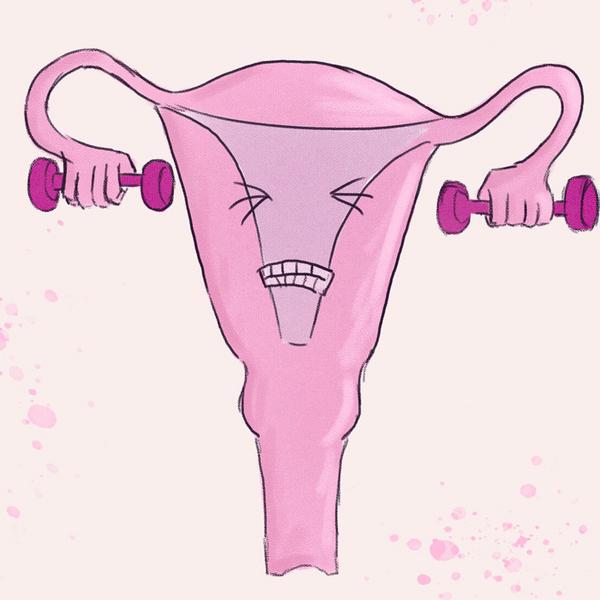
HOW TO: RECOGNISE AND TREAT VAGINISMUS
Illustration by Hazel Mead
Sex isn’t always a pleasurable experience. Penetration can feel sore, sharp and even completely agonising for some women. So, if you’re experiencing tenderness or discomfort when it comes to intercourse, or you have an unusually tight vagina that makes inserting anything – sex toys, fingers, penises or even tampons – into the vagina pretty much impossible, you could be showing signs of vaginismus.
Affecting around one in 500 women, vaginismus has been described as uncontrollable, severe and excruciating – as though the body is literally saying ‘no’ to sex, even if the mind is in the mood.
Many women say they’ve been suffering with vaginismus since the very start of their sexual journey, while others have experienced pain-free or enjoyable penetration in the past.
What is vaginismus?
Dr Ash Alam, consultant gynaecologist at London Gynaecology, says the painful problem occurs when ‘vaginal muscles involuntarily contract’ and essentially close off the vagina, ‘making sexual intercourse painful or impossible’. Although the condition generally only becomes apparent during sex or insertion, it is ‘out of the control of the woman and occurs as a reflex action’. It can lead to psychological issues and often has a severe impact on someone’s sexual wellbeing and self-esteem, as well as their intimate relationships.

What are the symptoms of vaginismus?
The severity of vaginismus symptoms vary from person to person, but many sufferers have labelled ‘excruciating pain’ as their strongest symptom. Some say penetrative sex feels like they are tearing inside, others describe intercourse as ‘impossible’ or like their partner is ‘hitting a wall’. There can be involuntary tightening, burning, stinging, fear of pain, fear of penetration and avoidance of sex altogether, as well as loss of sexual desire when someone – or something – is inserted.
Causes of vaginismus
A blend of physical and emotional issues can contribute to vaginismus, however there is no one specific origin. Dr Ash says ‘the most common cause it is due to some sort of previous sexual trauma or pain during intercourse’, but it can also stem from fears your vagina is too small, an uncomfortable medical exam, a damaging belief that sex is wrong or shameful, a bad sexual experience, an unpleasant vaginal infection such as thrush, or a combination of the above.
Vaginismus treatment
Painful penetration doesn’t have to become a long-lasting part of anyone’s sex life. Depending on symptoms, there are a few techniques to trywith the aim of curing vaginismus. Vaginismus Treatment usually starts with talking therapy, which is then followed up by vaginal exercises. ‘Local anaesthetic gels can help,’ says Dr Ash, as well as ‘CBT or psychosexual therapy to try and break the cycle’. Antidepressants can also be used to treat symptoms.
It’s often important that sufferers process feelings surrounding the body and sex, too, as once the negative thought pattern has been challenged, a sequence of mindfulness, breathing, squeezing and gentle touching can work to relax your muscles.When looking for a vaginismus cure, addressing the psychological causes is often more important than addressing the physical, certainly as a first point of call.
Treatment using vaginismus dilators
Dilators – smooth objects in different sizes – are also sometimes inserted into the vagina to allow people with vaginismus to get used to the sensation of penetration. Also lubricants are often used to assist in a more comfortable and easier insertion. Some people do choose to live with vaginismus, though, opting for non-penetrative sex as a way to enjoy pleasure without fear or discomfort.
Remember, you don’t have to suffer in silence when it comes to your intimate health. You deserve a pleasurable sex life, free from pain. If you are unsure about any of the above or think you might be suffering from vaginismus, make an appointment to see your GP and get the help you need to take care of your sexual wellbeing.
Sign up to emails and get 15% OFF
your first order
Stay in the loop on all things Ann Summers:
Updates on new arrivals, inspiration, offers and events!
*Discount only available on full price products
By inputting your information, you agree that we can use it in accordance with our Privacy Policy. You are able to unsubscribe from marketing at any time. By proceeding you agree to our Terms and Conditions.
You must be over 18 to join our mailing list.
By inputting your information, you agree that we can use it in accordance with our Privacy Policy. You are able to unsubscribe from marketing at any time. By proceeding you agree to our Terms and Conditions.
You must be over 18 to join our mailing list.
Sign up to emails and get 15% OFF your first order

*Discount only available on full price products
Stay in the loop on all things Ann Summers: Updates on new arrivals, inspiration, offers and events!
By inputting your information, you agree that we can use it in accordance with our Privacy Policy. You are able to unsubscribe from marketing at any time. By proceeding you agree to our Terms and Conditions.
You must be over 18 to join our mailing list.

